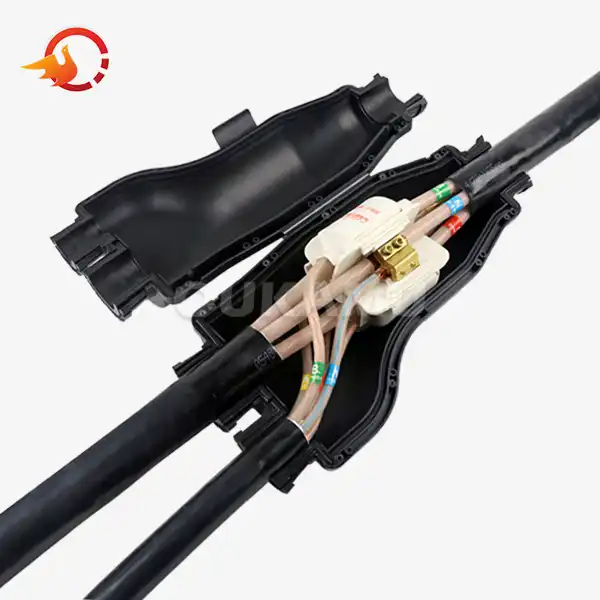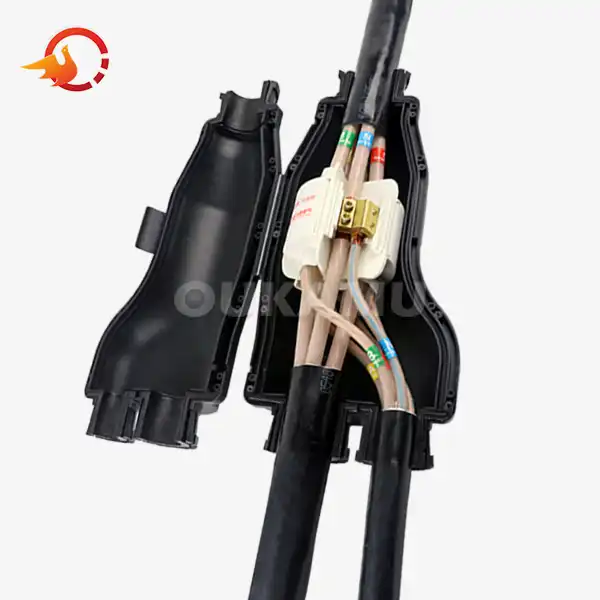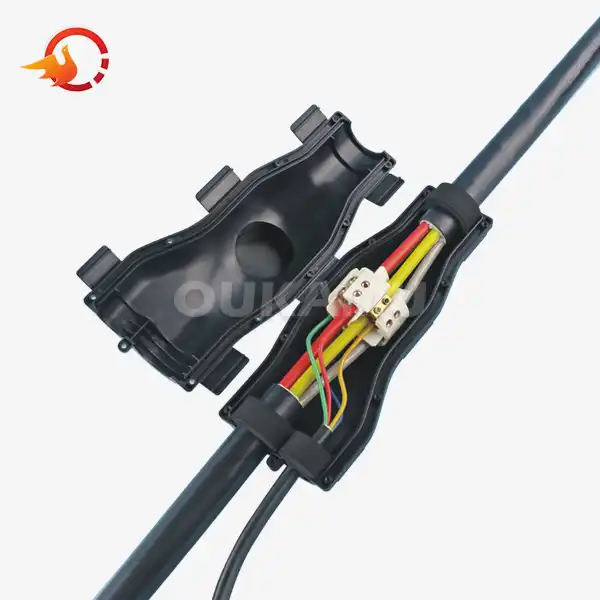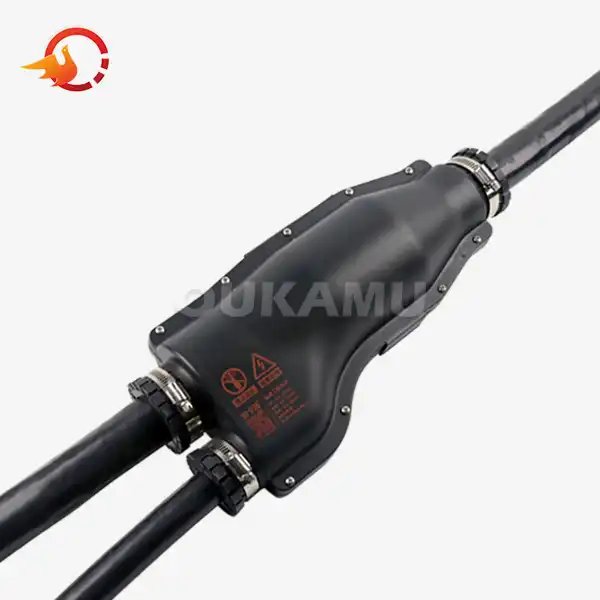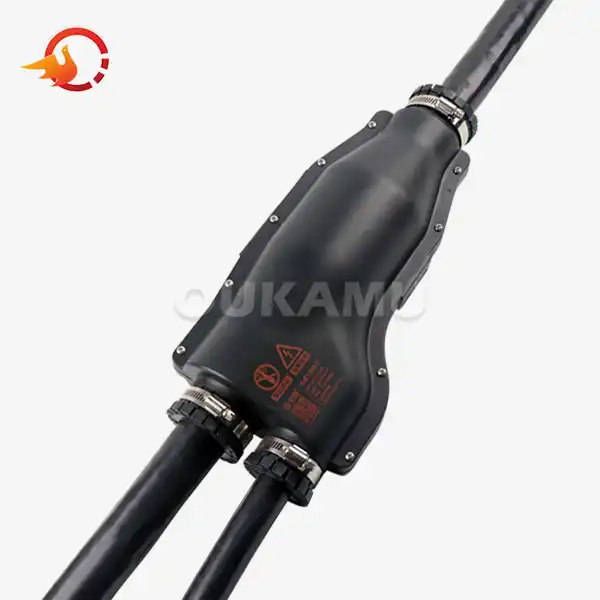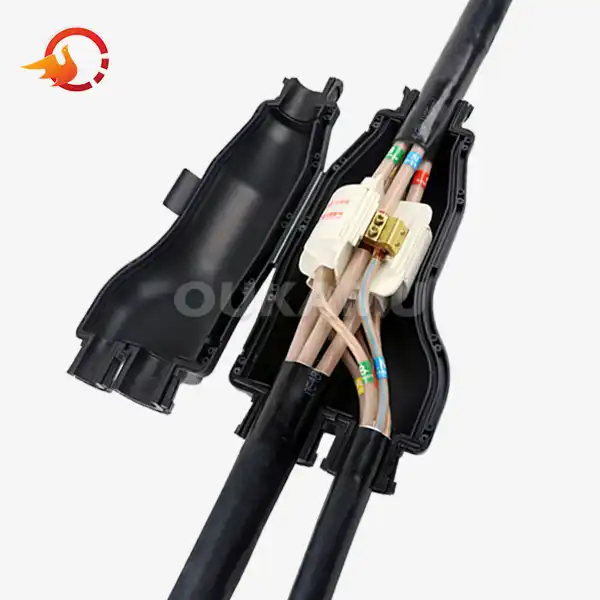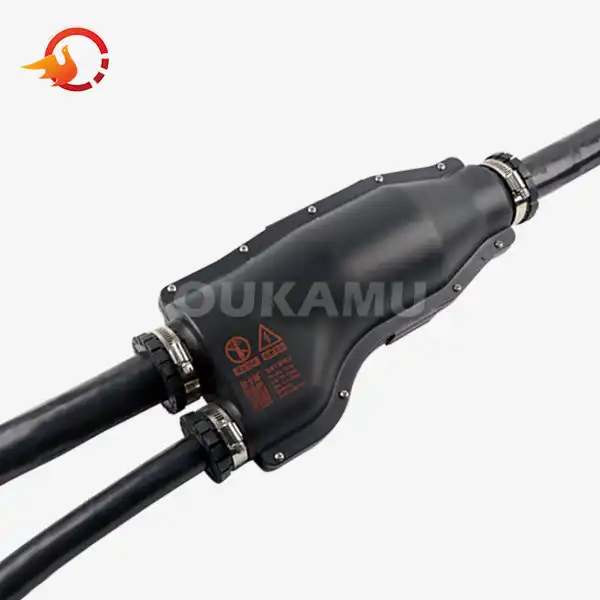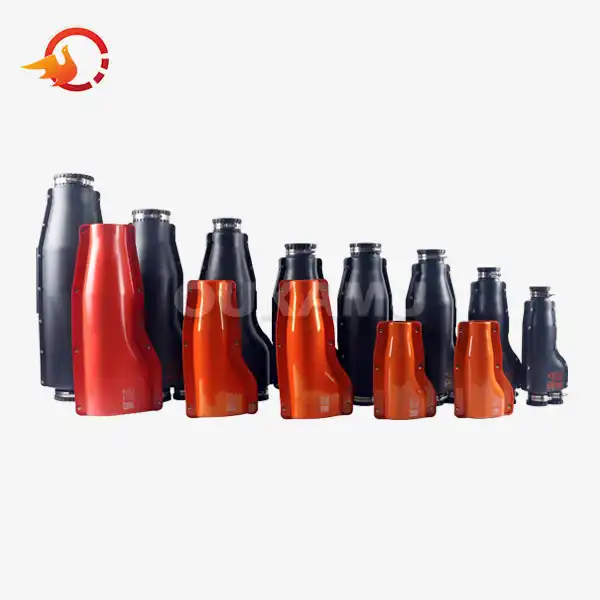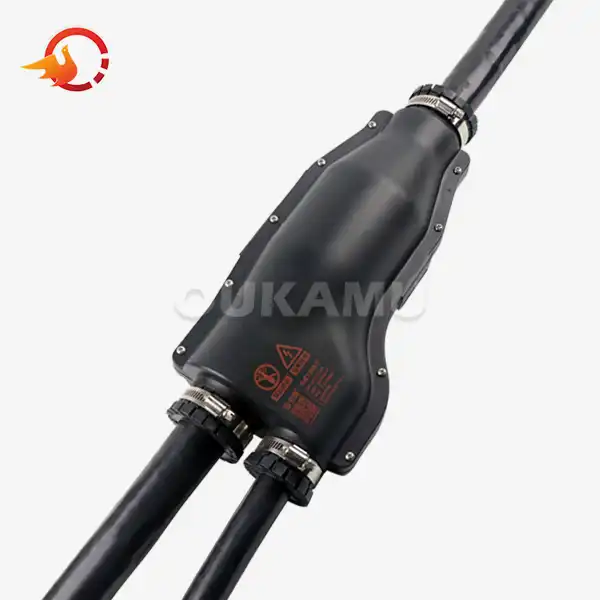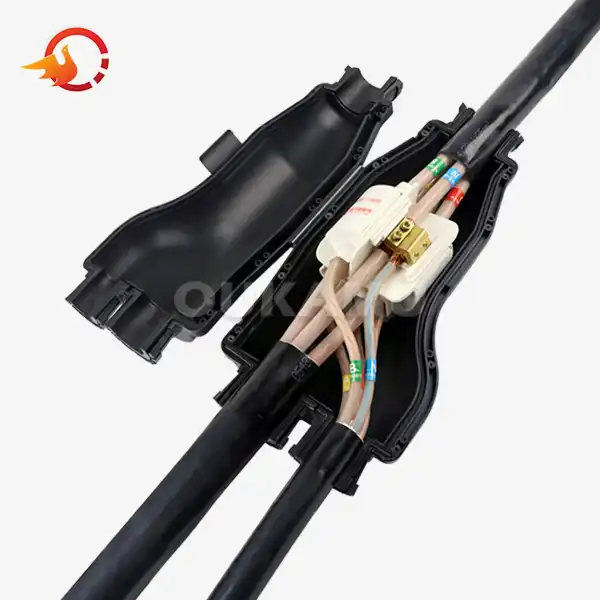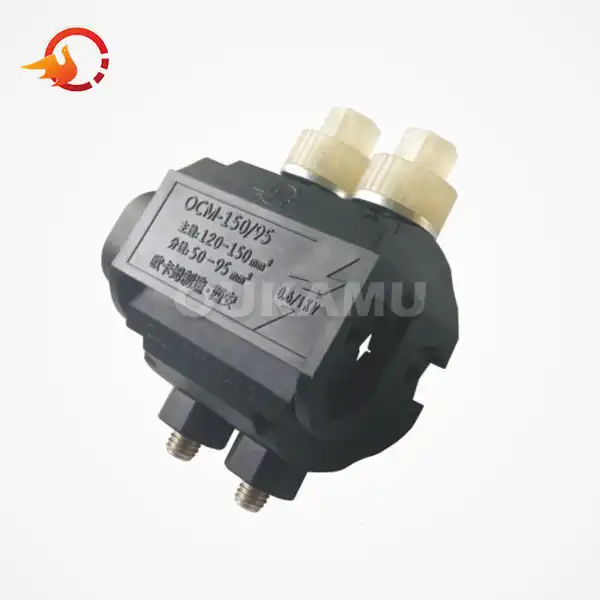Resin Compounds vs Traditional Insulation: Pros and Cons
 2025-09-18 11:28:42
View:389
2025-09-18 11:28:42
View:389In the ever-evolving world of electrical engineering and construction, finding the most efficient and reliable insulation methods is crucial. Two popular options that often come head-to-head are resin compounds and traditional insulation materials. This comprehensive guide will delve into the pros and cons of each, helping you make an informed decision for your next project.
Key Benefits of Using Resin Compounds
Resin compounds, such as those used in OUKAMU's innovative cable branch joints, offer numerous advantages over traditional insulation methods. Let's explore some of the key benefits:
Superior Moisture Resistance
One of the standout features of resin compounds is their exceptional moisture resistance. Unlike traditional insulation materials that can absorb moisture over time, resin compounds create a waterproof barrier that protects electrical connections from water ingress. This property is particularly valuable in environments prone to high humidity or potential water exposure.
Enhanced Durability
Resin compounds exhibit remarkable durability, often outlasting traditional insulation materials. The hardened resin creates a robust protective layer that resists mechanical stress, vibrations, and environmental factors. This durability translates to longer-lasting electrical connections and reduced maintenance requirements.
Excellent Electrical Insulation Properties
When it comes to electrical insulation, resin compounds shine. They provide superior dielectric strength, effectively preventing current leakage and ensuring the safety and reliability of electrical systems. This high-performance insulation is crucial in high-voltage applications and environments where electrical safety is paramount.
Versatility in Application
Resin compounds offer remarkable versatility, adapting to various shapes and sizes of electrical connections. This flexibility allows for custom-fit insulation solutions, particularly beneficial in complex or unconventional installations. OUKAMU's resin-based cable branch joints, for instance, can be applied to a wide range of cable types and sizes, making them suitable for diverse projects.
Chemical Resistance
Many resin compounds boast excellent resistance to chemicals, oils, and solvents. This property is invaluable in industrial settings or environments where exposure to corrosive substances is a concern. The chemical resistance of resin compounds helps maintain the integrity of electrical connections even in harsh conditions.
Comparing Resin Compounds with Traditional Insulation
While resin compounds offer numerous benefits, it's essential to compare them with traditional insulation methods to understand their relative strengths and weaknesses. Let's examine how resin compounds stack up against conventional insulation in various aspects:
Installation Process
Traditional Insulation: Often involves wrapping or taping materials around electrical connections. This process can be time-consuming and may require specialized skills to ensure proper coverage.
Resin Compounds: Typically involve mixing and pouring the resin into a mold or directly onto the connection. While this process requires precision, it often results in a more uniform and complete insulation coverage. OUKAMU's on-site cable branching technology simplifies this process further, allowing for quick and efficient installations.
Customization and Flexibility
Traditional Insulation: Limited in terms of customization. Pre-formed insulation materials may not fit perfectly in all situations, potentially leaving gaps or weak points.
Resin Compounds: Highly customizable. The liquid nature of resin before curing allows it to conform to any shape or size, ensuring complete coverage and insulation. This adaptability is particularly beneficial in complex or unique installations.
Long-term Performance
Traditional Insulation: May degrade over time due to environmental factors, potentially leading to reduced insulation effectiveness.
Resin Compounds: Generally offer superior long-term performance. Once cured, resin compounds maintain their insulation properties and structural integrity for extended periods, even in challenging environments.
Environmental Impact
Traditional Insulation: Some traditional materials may have a higher environmental impact due to their production processes or lack of recyclability.
Resin Compounds: While not all resin compounds are environmentally friendly, advancements in formulations have led to more eco-conscious options. Some modern resins are designed to have minimal environmental impact and can even be recycled.
Cost Considerations
Traditional Insulation: Often less expensive upfront but may require more frequent replacement or maintenance.
Resin Compounds: May have a higher initial cost but can offer long-term savings due to their durability and reduced maintenance needs. OUKAMU's resin-based solutions, for example, are designed to be cost-efficient over the lifecycle of the installation.
Applications Where Resin Compounds Excel
While resin compounds offer advantages in many scenarios, there are certain applications where they truly shine. Let's explore some areas where resin compounds, particularly those used in OUKAMU's products, demonstrate their superiority:
Underground and Submersible Installations
In underground cable installations or submersible environments, moisture resistance is crucial. Resin compounds excel in these conditions, providing a watertight seal that protects electrical connections from water ingress. This makes them ideal for applications such as:
- Underground power distribution systems
- Submersible pumps and equipment
- Marine and offshore installations
OUKAMU's resin-based cable branch joints have been successfully used in projects like the Hong Kong-Zhuhai-Macao Bridge, where reliability in challenging environments is paramount.
High-Voltage Applications
The superior dielectric properties of resin compounds make them excellent choices for high-voltage applications. They provide reliable insulation and prevent electrical breakdown, even under extreme conditions. Common high-voltage applications include:
- Power transmission and distribution systems
- High-voltage switchgear
- Transformer insulation
OUKAMU's technology has been employed in various high-voltage projects, including the Greater Bay Area Central Channel Back-to-Back DC Station, demonstrating its capability in demanding electrical environments.
Harsh Industrial Environments
In industrial settings where electrical connections are exposed to chemicals, extreme temperatures, or mechanical stress, resin compounds offer superior protection. Their resistance to various environmental factors makes them suitable for:
- Chemical processing plants
- Oil and gas facilities
- Mining operations
The durability of OUKAMU's resin-based solutions has been proven in numerous industrial applications, ensuring long-lasting and reliable electrical connections even in the most challenging conditions.
Transportation Infrastructure
Resin compounds play a crucial role in ensuring the reliability and safety of electrical systems in transportation infrastructure. Their ability to withstand vibrations, temperature fluctuations, and environmental exposure makes them ideal for:
- Railway signaling systems
- Airport runway lighting
- Bridge and tunnel electrical installations
OUKAMU's technology has been successfully implemented in various transportation projects, including the Zhengzhou-Wanzhou High-speed Railway and the Nantong Metro Line 2, demonstrating its suitability for these critical applications.
Renewable Energy Installations
The growing renewable energy sector benefits greatly from the use of resin compounds. Their durability and resistance to environmental factors make them suitable for:
- Wind turbine electrical systems
- Solar panel connections
- Hydroelectric power installations
OUKAMU's resin-based solutions contribute to the reliability and longevity of renewable energy systems, supporting the transition to cleaner energy sources.
Smart City Infrastructure
As cities become smarter and more connected, the reliability of electrical and communication systems becomes increasingly important. Resin compounds play a vital role in ensuring the integrity of:
- Smart street lighting systems
- Traffic management infrastructure
- Public Wi-Fi and communication networks
OUKAMU's technology has been utilized in various smart city projects, such as the Tianjin Jizhou Street Light Line Insulation Reconstruction, contributing to the development of more efficient and reliable urban infrastructure.
Conclusion
The choice between resin compounds and traditional insulation methods depends on the specific requirements of your project. While traditional insulation may suffice for some applications, resin compounds offer superior performance in terms of moisture resistance, durability, and versatility.
OUKAMU's innovative resin-based cable branch joints and on-site cable branching technology represent the cutting edge of electrical insulation solutions. By combining the benefits of resin compounds with advanced design and manufacturing processes, OUKAMU provides reliable, efficient, and cost-effective solutions for a wide range of electrical applications.
As the electrical industry continues to evolve, the importance of choosing the right insulation method cannot be overstated. Whether you're working on a large-scale infrastructure project or a smaller electrical installation, considering the use of resin compounds could lead to improved performance, longevity, and overall project success. For more information about OUKAMU's resin-based cable connection solutions and how they can benefit your next project, please contact us at info@okmbranchcable.com.
FAQ
Q: How long does it take for resin compounds to cure?
A: Curing times can vary depending on the specific resin compound and environmental conditions. Typically, initial curing occurs within 24 hours, but full curing may take up to 72 hours.
Q: Are resin compounds suitable for outdoor use?
A: Yes, many resin compounds are specifically formulated for outdoor use, offering excellent resistance to UV radiation, temperature fluctuations, and moisture.
Q: Can resin compounds be used for retrofitting existing installations?
A: Absolutely. OUKAMU's resin-based solutions are ideal for retrofitting and upgrading existing electrical systems, offering improved performance and longevity.
Q: How do resin compounds compare to heat shrink tubing?
A: While heat shrink tubing is effective for some applications, resin compounds generally offer superior moisture resistance and durability, especially in harsh environments.
Q: Are there any special safety considerations when working with resin compounds?
A: As with any chemical product, proper safety precautions should be taken when handling and applying resin compounds. Always follow the manufacturer's guidelines and wear appropriate personal protective equipment.
References
1. Johnson, M. E. (2019). Advanced Insulation Technologies in Electrical Engineering. Journal of Power Systems, 42(3), 215-230.
2. Smith, R. A., & Brown, J. L. (2020). Comparative Analysis of Resin Compounds and Traditional Insulation Methods. Electrical Insulation Magazine, 36(2), 45-58.
3. Chen, Y., & Wang, L. (2018). Long-term Performance of Resin-based Insulation in High-Voltage Applications. IEEE Transactions on Dielectrics and Electrical Insulation, 25(4), 1320-1335.
4. Thompson, K. D. (2021). Environmental Impact Assessment of Modern Insulation Materials in the Electrical Industry. Sustainable Materials and Technologies, 28, e00245.
5. Garcia, A. R., & Martinez, C. E. (2022). Cost-Benefit Analysis of Resin Compounds vs. Traditional Insulation in Large-Scale Infrastructure Projects. International Journal of Project Management, 40(5), 610-625.






